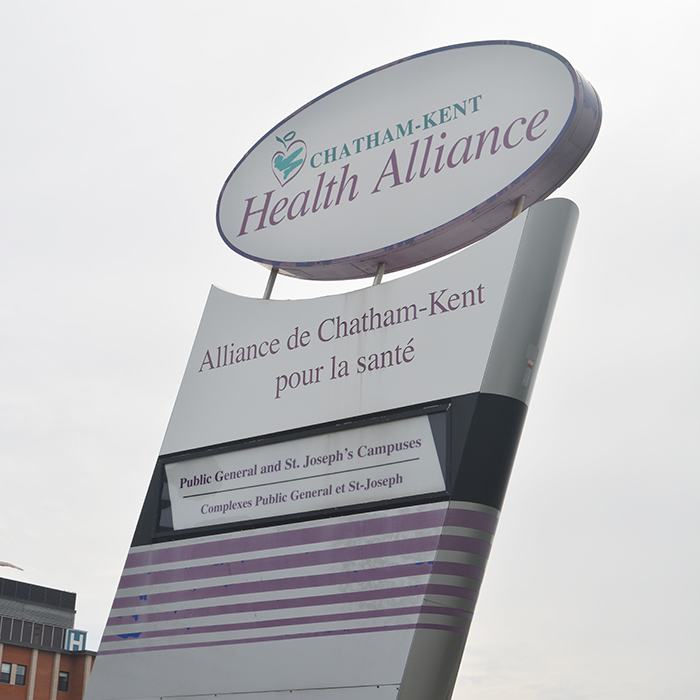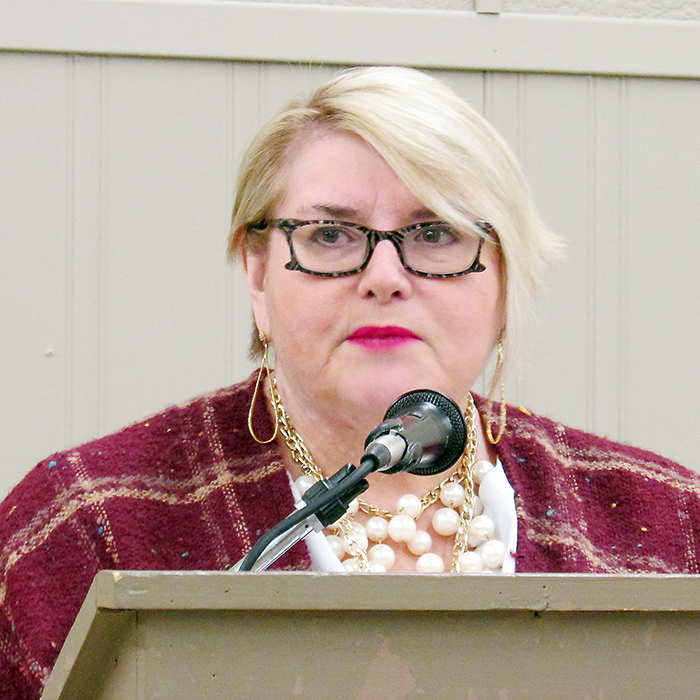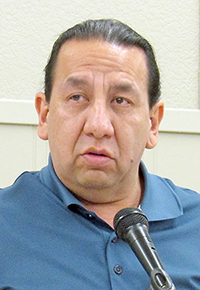
Shirley Roebuck has a message for Chatham residents who may be unconcerned about what she feels is the imminent closure of Sydenham District Hospital.
“They’re coming for you next,” she said. “Unless there is a change in management attitude or the provincial funding model, they will be cutting services here and you won’t have Wallaceburg to fall back on when you have the 14 hour wait times at emerge in Chatham.”
Roebuck, a retired Registered Nurse, chaired a meeting in Wallaceburg April 7 aimed at marshaling support for continuing emergency department care for the 25,000 people in the SDH catchment area.

The meeting resulted in the formation of a local chapter of the Ontario Health Coalition that is joining forces with the Save Our Sydenham committee and the Sydenham District Hospital board to maintain health services in Wallaceburg.
At last month’s meeting of the SDH board, Chatham Kent Health Alliance officials said a decrease in provincial funding left the group with a $1.8 million deficit. It is currently spending about 30 per cent more for emergency services than is allocated.
Alliance CAO Colin Patey said the administration is preparing a proposal for a $10 million investment to replace Sydenham Hospital but its contents haven’t been finalized.
Despite repeated questions, Patey refused to say whether the plan would include an emergency department.
The plan is to be made public at an April 19 meeting in Wallaceburg. It will eventually require approval of the Erie St. Clair Local Health Integration Network.
The day before that, members of the coalition will be heading to Queen’s Park for a Day of Action to petition both government and opposition MPPs and provincial health ministry officials about the need for emergency care in the area.
The fledgling movement has already garnered support from nearby rural and First Nations communities
Walpole Island First Nations council member Rex Issac said solidarity is important.
“Walpole supports health care for all our people in our community because this is our community,” he said. “We all grew up together.”

He said citizens deserve to know if their health-care dollars are being spent wisely.
“I think we need a complete evaluation of the LHIN. I don’t think that’s been done.”
Emery Huszka, Ontario president of the National Farmers Union from Bothwell, spoke in support of the effort.
“Rural Ontario depends on rural services. This is not just a Wallaceburg issue. There’s been a systematic defunding of rural Ontario.”
He said agriculture is one of the most hazardous occupations and we take it for granted that when a farmer has an accident, medical care will be available. “We fully support this effort. We need to ask those in charge ‘how dare you challenge the basics of our life’?”
Emergency department visits at the CKHA totalled more than 61,000 last year, with about two thirds of those in Chatham.
“They can’t begin to handle the volume,” Roebuck said. “We have ambulances coming to Wallaceburg every week with patients that can’t be seen because Chatham is too busy. Not to mention the people from Chatham who drive here because they can’t get in for hours and hours.”
Natalie Mehra, Executive Director of the Ontario Health Coalition, said her group of 80 volunteer-driven chapters, is planning a spring referendum asking Ontarians to vote against further health care cuts.
“There are unprecedented cuts across the province,” she said. “We’re looking at situations such as in Welland where they’re closing five hospitals in the area to build one super hospital. That project is ten years away but they’ve already started closing hospitals. This is very, very bad. It’s the worst I’ve seen in years.”
She took aim at CKHA management.
“If Sydenham District Hospital is not viable it’s because they made it so. These are decisions made by human beings and they can be changed. Your CEO was hired to run two hospital sites, not one. If he can’t do his job, then he needs to be held accountable for it.”





